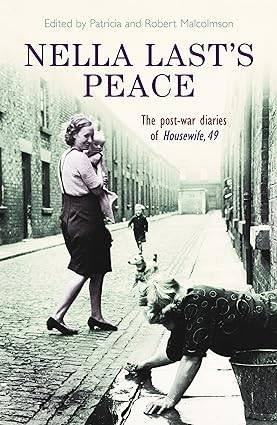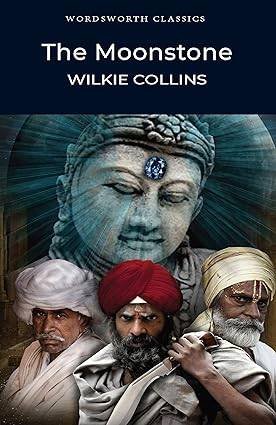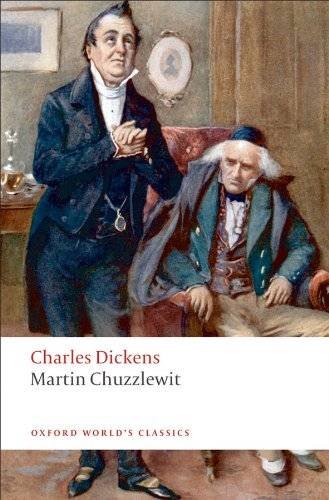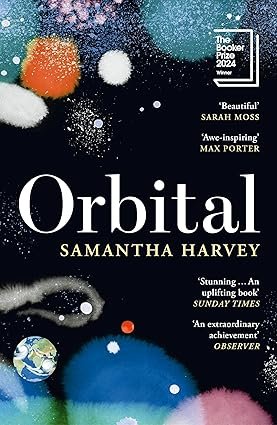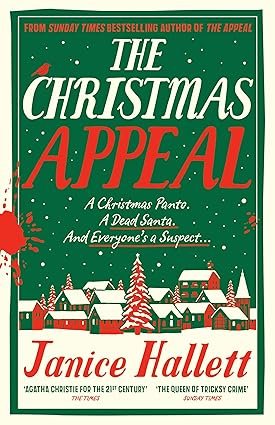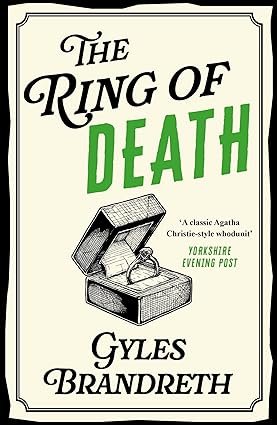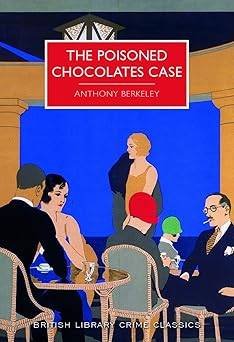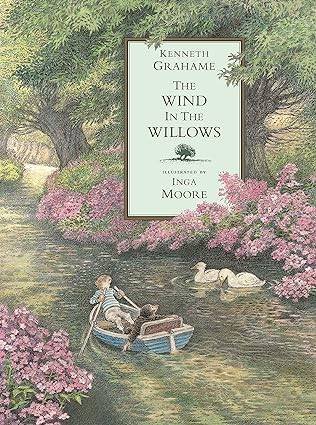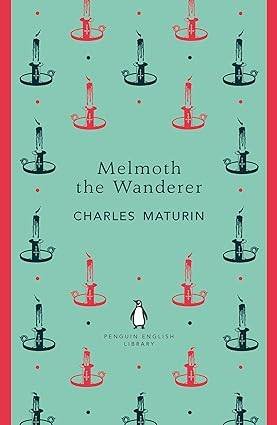Home » Book Reviews » Patricia Malcolmson » Nella Last’s Peace, edited by Patricia Malcolmson and Robert Malcolmson
Possible spoilers ahead
I absolutely love reading diaries (I am so nosy!) and I really enjoyed reading Nella Last’s War (her diary entries written for the Mass Observation project during the Second World War), so when I saw this next instalment of her diary entries I knew I had to read it. This diary begins in Aug 1945 after the war has ended. I see the editors have mentioned that no-one has ever read through the entirety of Nella’s diaries! Omg, I would love to have the job of wading through them, it would be an absolute pleasure! Grab your copy and let’s read it together!
Nella is married to Will, though her husband is rarely spoken of by name, mostly being referred to as ‘my husband’. He has a business (window-glazing?) which he inherited from his parents. They have two grown-up sons, Arthur who is married to Edith (and Edith seems jealous and cold towards her mother-in-law, which saddens Nella), and Cliff, who Nella is often concerned about with him being undecided about the career he wants to follow, and who then moves to Australia, which upsets Nella greatly as she misses him very much.
I love her enthusiasm for writing her Mass Observation diaries, and it seems like writing them was a huge crutch and balm for her. It feels such a privilege to be able to share her honest and raw thoughts and feelings, and I find her so inspiring. And I love this project by the Mass Observation people, what an amazing idea to ask ordinary people to record their thoughts in the form of diaries, what a valuable and very real record of time. And what a wonderful place to work, collating all these diaries! But I see fairly soon into this book that the long-awaited peace hasn’t brought the expected contentment, yes there is relief that the war is over but not the continual happiness that people always anticipated that the end of the war would bring.
I’m finding quite quickly that it’s hard to review this book in a coherent way, as Nella can mention many subjects within one diary entry and also go back to particular subjects throughout several diary entries. I have therefore found it easier to group the subjects together slightly.
I was really struck with Nella’s character and what was important to her. I find her such an inspiration with her positive thinking, and she classes as gifts her ‘love of peace and fun, and seeing folks happy’. We do sometimes get a glimpse of how hard she has to struggle at times to feel positive though, and I was quite worried about her when she said how old and tired she felt, but then it’s even more remarkable how she manages to pick herself up and carry on, she says she sometimes feels ‘as if I’ve had little unnoticed grains of sand drop on my head, unnoticed till it’s a burden that is not easily shaken off’ and ‘I calmly look back on what I feel was quite a gallant person, and realise what a contrast to the tired, resigned old aching bag of bones I am today’ and ‘how at times I feel I’ve the makings of a real recluse growing in me’ and ‘I do pray earnestly for courage and gaiety, kindness and strength, feeling my little lamp flicker so often, feeling I’d like to sleep for a week and get everything in focus before I woke’. And the challenges of the time bring her down, ‘the monotony of my life that tires and ages me’. But she always admirably puts a brave face on things, ‘I’m not really calm and strong, and I sometimes feel tired out with being so. I must be a very good actress, for inside me I feel worry and more worry about little things’. She’s obviously very good at reading people’s moods and is skilled at saying the right thing to avoid an argument and to de-escalate tension, she said she has learned to ‘keep people together by a laugh when to take notice of tempers could have meant a split’, and she aims at ‘keeping them happy, joking little squabbles away’, which is such a great skill. She is clearly a sociable person, but interestingly she is also happy being by herself with her thoughts as she says ‘being alone has no terrors for me, there’s so much to think about’, although she can be lonely at times, feeling ‘in spite of all my gay chatter and nonsense, I have no-one with whom to talk things over’, awww, bless her. It is obviously important to her to give to others and to her country, and she values ‘the beauty and worth of sustained service with and for others’, which are such admirable sentiments. I liked the mention of her interests of ‘reading and cats’ and that ‘always I longed to write, but there was something missing, only in my letter writing and MO (Mass Observation) have I found fulfilment of my girlhood yearning to write’, omg, I’m sure I’m not alone in feeling that she is just like me! I admired her ability to look for and appreciate the small pleasures in life, and to see that you get from life what you put into it as she says, regarding her WVS war work, ‘I had quite as much out of all I did as I put into it, but life’s like that. It’s what we do rather than what we get that is the real heart’s ease’. She can be an assertive and determined lady, and reflects on ‘how hard I’d grown these last six years’, and I chuckled at her challenging a shop-keeper for hiding some bad apples underneath the good ones, and her disgust at the Major’s unappreciative behaviour. I was fascinated with her make-do-and-mend attitude, and it makes me feel inspired to try and do that more too, to try and repair garments instead of throwing them away, and to try and grow vegetables instead of buying everything from the supermarket, although I don’t think I could cope without modern appliances, she says when she was offered a fridge ‘I’ve done so long without it, I could have gone on doing so’. She is so self-sacrificing and empathetic too, as when she wakes up in winter and feels cold she thinks of others who are cold, instead of thinking of herself, and she puts one of her woollen jumpers in the Save Europe parcel, thinking it ‘wasn’t right’ that she had two, and she is shocked to hear her neighbour say she’d rather burn a jumper than have it go to a German, which makes Nella think that ‘good is stronger than evil, and only by turning to good, in however simple a form, we will find strength and a way out of all the mess we are in’, awww, I just want to hug her! She also sounds like she was such a wonderful thoughtful mother, nurturing and encouraging a child rather than just admonishing them, recognising ‘the power of love, the importance of seeing the good behind the naughty, and most of all letting a child see good in a mother, never telling them untruths or breaking a promise’. And it made me sad how she worries about her relationship with her daughter-in-law, ‘I’ve always tried so hard to make her feel a daughter’ but Nella feels that Edith is jealous and resentful of ‘Arthur’s deep love for me’, which is such a shame as it’s to Nella’s credit that her son is so loving towards her, and she has obviously instilled such loving qualities in him by being such a good mother, and I also can’t begin to comprehend how you could have someone as wonderful as Nella in your life and not be grateful and happy for her influence. But I guess we are only seeing Nella’s view of things in her diary, and relationships can be complicated.
I found Nella’s thoughts and worries about demobbing quite enlightening but sad to read, how the soldiers must have felt such joy at returning home but then being faced with restrictions and lack of jobs after all their suffering and sacrifice for their country, and how hard their families must have found it to have long-waited-for loved ones back home but who were often disabled and suffering mentally. Nella worries that ‘if they marry, there is little chance of setting up a home of their own’ and that ‘high hopes and joy at being free again is carrying men along, but when they realise the scraping and pinching to start a new home as well as keep on, men will grow bitter, and if things don’t quickly stabilise will tend to turn to anything that holds out more hope, from crime to Fascism or communism’, which sounds quite alarming! She is also concerned about couples struggling to live together again when they have been apart for so long. But, inspiringly, she feels that ‘it’s ordinary simple people who will be the salvation of the world’.
Nella had quite strong views on America, which I didn’t fully understand and I was surprised at how harsh she seemed. I guess maybe you had to be there at the time in order to see how these views were being formed (and perhaps also what media messages were possibly influencing this view), and to appreciate the difficulties that English people were facing and the comparison between what England had and what America had (or what English people thought America had). She seems to feel that America had come out of the war relatively unscathed, saying ‘they seem to have all the money in the world’ and she is annoyed at America ‘not doing anything unless she wants’. She seems also to be disappointed at the attitude of American people, feeling that America ‘has no soul’ and that ‘one of the strongest cornerstones in American society as a whole is bitter resentment’, and she remarks on ‘their love of being top dog’. She also seems to feel that America’s decision-making is flawed, that they are ‘laying the foundations of resentment which will recoil on her, whereas she could have laid those of real comradeship’. As I say, I’m not sure what had happened (or that Nella perceived to have happened) for her to have these strong views, and I was quite surprised by them, especially thinking of D-Day with the huge sacrifices made by American soldiers (along with English and French and Canadian soldiers), I know this is me looking at history with modern eyes, but I had kind of thought we were all in it together.
Nella’s qualms about peacetime are interesting, and again it made me quite sad to contemplate the difficulties that people faced, after all their hopes of a return to normality after the war had ended. There is still rationing of food in place and they have to keep to an allowance of coupons, and Nella has to be inventive with sparse ingredients for meals and the lack of variety this causes, though she does appreciate the nice food they do sometimes get. There are also restrictions on petrol and on the distance a coach can travel. She says ‘it suddenly struck me how darn sick I was of controls and shortages of little ordinary things’ and ‘there is not a scrap of soap in town, nor matches or cigarettes’. I cannot imagine living with long-term rationing like that, and they must have felt cheated after going without during wartime and then still going without when the war ended. She also describes frequent electricity cuts, and sometimes 100% cuts meaning that hairdressers and cinemas close, and how these cuts also affect her ability to cook meals at home, causing her to go back to cooking stews and soups over the dining room fire. She regularly describes herself as completely exhausted, with having to queue for rations and trek all over town hunting for items, and trying to create tasty meals from very little, she says she sometimes feels ‘like a burnt-out shell craving only to relax and rest’, and that she feels an urge to lie in bed all day. Awww, bless her, my heart goes out to her, not only exhausted from the present difficulties but also having lived on her nerves for such a long time while the war was going on, continually being anxious and scared and feeling powerless, it must have taken a long long time to recover from that. And of course, there were viruses and bugs going around too, brought back by soldiers and nurses returning home from abroad, and people being so run down and tired would have made them more vulnerable to picking up things. But surprisingly, not all towns are struggling in a similar way, as Nella is astonished at the supplies she sees available on a visit to Scarborough, ‘hot-water bottles, Wellingtons, plenty of stockings’, and bless her, it made me smile to see that those are the important and valued things. She describes these uncertain times as ‘a world of shadows and doubts’, and questions what is real and what is not, and she clearly worries a lot about what is happening in the world, and aims to always keep herself informed about things by reading the news. She is particularly concerned about Japan, and with how she feels the world has been irrevocably altered by the use of the atomic bomb, ‘we will always live in the shadow of fear now’ and ‘no country will ever be safe’. She sees this new world as being built on foundations of ‘bitter hatred, chaos, broken faith, lost ideals’. It’s so interesting to learn her views, and to see that she feels regret at the way the war was ended, and fear for how it could be used again in the future, feeling ‘a deep sadness over my mind and heart like a shadow, instead of joy the war is ended’ and ‘I see few signs of the brave new world’. She remembers the celebrations and positivity and hopefulness of the end of the First World War, ‘such a wonderful day…the feeling of deep thankfulness that the war was over, that we will never have another war. Now no-one feels gay or happy about this one being over. People feel suspicious about “war to end war” and no-one talks like that now. Rather there is that feeling that discord is spreading, that given the opportunity, there would be an even bigger war where “nerves” and atomic bombs would wipe everyone out’. Her words are so poignant and sad, I feel she should be read by everyone, especially the people who make important decisions for countries (not for them to necessarily revise their decisions but just as a prompt to consider the effects of their decisions). She worries about displaced homeless people and the elderly and young children in England, and also in Vienna and the Balkan states and Greece and France, them being out in the cold and in need, and she is annoyed at the attitudes of others about foreigners, particularly hearing some women saying that they wanted to ensure that the baby bundles they were making wouldn’t go to ‘traitor’ German or French babies, whereas Nella thinks that ‘little children feel cold and frightened whatever their country or colour’, and ‘To me it’s really terrible to see German and Italian POWs, as well as Poles…tidying hedges and ditches and road borders…and harvesting our food…slave labour…Why oh why are they not sent home to work at repairing their own land…building up family relationships?’. Awww, bless her, she is so caring and kind to all, and sees all as victims and in need of help, rather than as enemies. But she recognises how overwhelmed people feel now the war has ended, ‘things alter and move so quickly’ and ‘in the chaos that follows war, there seems so little to grip’, and that now ‘people have time to think, and their thoughts make them afraid’ and ‘we do seem nervy nowadays and little kindly acts and tolerance grow more scarce’. It’s so sobering to consider how hard life still was, after everyone had gone through so much.
Nella reflects a lot on the war, all of which is insightful to read. She understandably feels great anger about it, stating the ‘utter stupidity of war’ and ‘the utter futility and senselessness of mankind, the cruelty to each other, the utter waste of it all, and not one lesson learned’. And anger at the decision-makers, ‘I felt wildly that if I was God I’d spin the world wildly to shake off all the foolish people on this lovely earth and start all over again’, and ‘it’s so ghastly to think that people who fight, endure, and suffer are not the ones to begin wars, and are so helpless to stop them’. And she is concerned again that there may be another war, ‘We used to feel a sad but proud “never again” feeling in the two minutes’ silence. Now, God pity us, we feel a shrinking “how long before another war?” creeps into our minds’, and I feel sad for her that she has that fear, understandable though it must have been, everything must have felt so unpredictable and that the ordinary person was so powerless. She also feels that the war could have perhaps been avoided, reflecting on ‘the blindness and complacency which allowed us to look on while Hitler armed and prepared’, and she feels that people told themselves that Germany wasn’t a serious threat and ignored ‘the huge strategical arterial roads being made’, and she remembers that her father never trusted the Germans after the First World War. She obviously also recognises the long-term effects of the war, she says ‘the shock when war came seems to always remain’ and she feels that ‘the corrosion of the war years is eating deeper into civilisation’, and wishes for ‘the ignorance that really was bliss, when war was something in the history books for ordinary people’. She feels that ‘this generation has lost so much, and dear God they ask so little, just that chance to work and see something for their labours, a share in those simple good things in life’. It’s heartbreaking to read, I can’t imagine how on earth you begin to process and deal with everything that you’ve witnessed and gone through, you surely couldn’t avoid being a different person afterwards. And yet there are things she values from that war time, such as her own courage which she was able to summon and draw on, she remembers when Churchill gave his speech of “fight on the beaches, on the streets”, that she ‘felt strong…I felt my head rise as if galvanised and a feeling that “I’ll be there, count on me, I’ll not fail you”…feeling a surge of strength coming over the air, flooding not only the quiet room, but my tired body’, phew, it almost makes me shiver just her repeating Churchill’s speech and how it inspired courage in her and others, and makes me wonder if I’d struggle to be similarly courageous if I had to go through that. She also appreciates the community spirit of that time and ‘the laughter and fellowship of the war years’, and I think she sounds quite wistful regarding that.
Women faced the expectation that they would contentedly go back to being housewives at the end of the war and defer to men as they did before, but Nella is determined that she will ‘never go back into the cage of household duties alone’ when everything had to be ‘liked or approved by the lord and master of the house’. I really feel for those women with them facing losing the self-worth of being in employment and being useful and making a difference, which meant so much to them during the war. But I can also appreciate that the men returning from war would want the security of things being as they used to be and the predictability of set roles for men and women, and they would expect employment for themselves and to have their old jobs back. Arrrgh, from what seems like the joy of the war ending, it’s tragic to consider how much tension and misunderstanding everyone still had to deal with when they attempted to resume “normal” life after everything had changed so much. However, Nella took her role as a wife seriously, saying she hopes she ‘could always look after him, after all, it’s my job and I like a job well done and finished off’, which I guess also demonstrates the conflict that women perhaps felt, partly desiring their old role and partly wishing for change.
Nella obviously greatly enjoyed being useful in the war, and felt liberated by feeling useful, which compares sharply with how she feels now the war is over, that she is now ‘so useless and little, my efforts so futile and feeble’ and she looks for voluntary work, feeling ‘I wish I could find some work which had to be done…working with and for others’ and ‘I want to feel I am helping, in however small a way’, awww, bless her, I can feel her frustration, she has so much to give and is so keen to give it. And she also yearns for the community spirit from working with others during the war, recognising how she gained from this, feeling that she ‘learned the real joy of service and working together’, but that now ‘our work and effort seem only a dream that has faded’. Oh, such sadness, bless her. But Nella tried to fill her time and be useful, and I found her usual day-to-day activities interesting, such as making dolls, ‘there’s a great satisfaction in seeing a thing take shape and form under one’s hands, especially if they are made from oddments into something worthwhile’ and she is obviously a skilled seamstress, as she embroiders a cushion for her home, and takes the hem down in the curtains when they had shrunk, and makes her own blouses. I feel sad in a way that we have lost these skills and self-sufficiency (or at least I would have no idea how to go about such a task!).
I am envious of where the Lasts live, with the beauty of the Lake District just a short drive away (and I especially loved that her Siamese cat, Shan We, also went in the car with them, and into cafes too, attracting much attention!). Nella frequently appreciates being able to go to such a beautiful place and experience ‘the freedom of fresh winds and air’ and being able to ‘hold up your arms to the everlasting hills and draw their peace and beauty and healing calm into your tired minds’. She describes the joy of nature so well, particularly the wonderful trees and their changing colour, such as ‘golden brown leaves softly falling like snow and drifting along the roads into heaps’ and ‘the beech trees are still a golden glory and the sun turns the bracken-clad moss and hillsides to russet’ and ‘a golden tassle of one turned branch of beech’ and ‘cherry trees gleam like a torch in the dull green’ and ‘there was that feeling in the quiet trees that they were all ready and waiting, that all their preparation for spring were made, they only wanted the signal to burst into leafy beauty’. Her description of birds is also lovely, she has such a beautiful turn of phrase, such as ‘the birds twittered so happily, it sounded like singing’ and ‘the air was drugged with sweetness and the larks seemed singing in competition, so sweet and shrill they sounded’ and ‘the thrushes and starlings chirped happily, as if telling each other winter was past, but great black-backed gulls ranged on the roof tiles and chuckled evilly. They knew it was only a breathing space’, tee hee, I liked the characteristics she gave there to the different birds. And she appreciates how being open to nature can improve your mood and enable you to see clearly again, ‘the westerning sun still warmed the dining room and made for that feeling of well being when all is glowing and warm’ and ‘the wind blowing over the moors and through little gullies sounded like a whisper, which, if you could only hear plainly, would tell you all you ever wanted to know’. I’m so glad that Nella had all this beauty and gained so much from it, with all the difficulties and hardships and sadness she faced otherwise (and obviously many people didn’t have this access to beautiful areas, and Nella appreciates her good fortune). She says ‘sometimes I feel I’d like a tiny cottage in the country amongst the hills I love, and quietly dream my life away’, bless her, what an idyllic thought.
I often forget that there was no NHS until 1948, and it filled me with horror hearing how people like Nella just had to cope. She says in 1946, ‘I do agree about the state being responsible for hospitals. I’ve had so much illness and so often couldn’t afford treatment I should have had, pulling through more by will power than care’. She often mentions how they treated ailments themselves, for example she had twisted her leg and could barely stand on it so she ‘knelt in very hot water in the bath…afterwards rubbing it well with wintergreen, and it was a little better’, and ‘whisky is my standby in either gastric attacks or flu colds’. Some of the old-fashioned treatments with herbs, etc, are really interesting and I feel we’ve lost this knowledge now, but I would much prefer to rely on the NHS rather than relying on herbs!
I particularly loved Nella’s details of the meals she prepared, and I was so impressed with how inventive she was and what a variety of dishes she managed to create, with access to ingredients being so limited, contriving with very basic things to create something nice, and I liked how proud she clearly was of these meals and of being a good housekeeper and provider to her family, saying she ‘dearly loves to see people round my table enjoying the food I’ve cooked’. She clearly realises the value of good food and how it keeps people healthy, ‘I believe in good wholesome food well served as one of the chief essentials of life, from both a physical and mental standpoint’ and ‘I feel it will build us up for winter and help us face any crisis’. It all makes me feel so grateful for the abundance and range of food we have now, but I’d also love to be as skilled as her at making something out of more or less nothing, I can imagine the satisfaction of that, but it sounds as if not everyone was as skilled as Nella was with food, with her always planning ahead and saving bits and pieces and her knowledge of what foods went well together and how to draw out flavours, and she certainly does appreciate her gift in this regard, ‘My thrifty country ways of always a bit on the shelf rather than a feast and then a famine has been after all a gift that is better than a cleverness’. And it’s interesting how eating styles have changed too, as for Nella and her husband lunch was the main meal and always three courses, soup and then something meat-based and then a sweet, with her husband coming home from work for this lunch, and then the evening meal was a lighter meal of fruit, bread and butter, and cake (though I guess this is perhaps also a reflection of the social class they were part of). And the effort Nella goes to in order to create those three courses, I really don’t know how she did it! I found myself relishing the details of nearly every meal she made, I grew quite obsessed with how she did it all, bless her, there were meals such as ‘bacon and sweet apples cut in thick slices and there was wholemeal bread and butter, raspberry jam and plain cake’ and ‘soup to heat and we had potted meat, celery and tomatoes, wholemeal bread and butter’ and ‘soup to heat and enough meat roll, and I boiled potatoes and carrots and made a good steamed raisin pudding and a little marmalade jam’ and ‘sausage in a flat dish and stewed apples and made apple sauce and put it on the sausage and added a layer of mashed potatoes and it made a very tasty lunch’ and ‘there was bottled pears and unsweetened milk for cream, wholemeal bread and butter, parkin and plain cakes’ and ‘buttered malt bread and shortbread and parkin biscuits by the fire’, wow that is quite a list (was it just me who felt a need to note it all down, tee hee?!) but it all sounds so delicious, though I’m aware of how hard she worked to produce it all. And I admire her bottling and preserving in jars so they had tasty food in winter, growing their own fruit and vegetables, making her own bread, etc, I would love to do all these kinds of things but these skills and knowledge aren’t really passed down and valued now (although that’s really no excuse, I could just google how to do it!). But I doubt I could follow her saving bits and pieces of food in order to use it in something else several days later, I’m sure we are far too wasteful today but I would worry about things going off. She says ‘I had a bit of pastry in a bowl from last baking day, and I made a nice damson tart with a jar of bottled damsons’, wow, just that one sentence gives such an insight into how she has successfully planned things, from the bottling of the damsons to the saving of the pastry! I do however seem to almost hear her voice in my ear sometimes when I am about to throw some food away and I found myself making a particular effort at Christmas time to think how to use up leftovers, getting quite obsessed with a few spoonfuls of sweet mincemeat, and a couple of sprouts and one roast potato! And if I find I’ve made too much of something, like a risotto, then I’ll now make some pastry and put the extra bit into a couple of pasties and freeze them, and I have even been known to save leftover chips from the Chinese takeaway and chop them up into a Spanish omelette the following day (and I’m now thinking of how eating a Chinese takeaway would no doubt horrify Nella, tee hee!). But I did feel for her with the frustration of not having ingredients available, particularly with her being such a skilled cook, she says ‘I am so tired of casseroles and stews’ and ‘I have to plan and scheme to get fresh flavours and always to make a tempting meal from scraps’. But some of the things she makes really don’t sound nice, such as making peppermints out of dried milk and using dried egg to make custard, but I guess if that’s all you had then it probably was yummy! And she is also so skilled at bulking things out too, such as adding beans to soup or ‘tinned tomato soup with onions grated in’, and ‘I put raisins and a little honey in one of my little loaves when I baked’, and soaking and stewing dried apricots to make them more flavoursome. And I loved her excitement when she learnt that oranges and grapefruit were in the shops, planning to then make ‘some real good marmalade’. She is a wonder, and I would have loved there to have been a recipe book produced by her.
One of the most fascinating things I found in this book was Nella’s relationship with her husband. I am struck with how much she concealed from him, some things so as not to worry him, such as money worries and concerns about the children (although then she had to shoulder these by herself), but also how she concealed her real self, hiding from him her ‘rebellion of heart and mind’ and her ‘frustration of spirit’, it makes me sad that she couldn’t show her true self to him and also made me sad that she felt she had to subdue her personality and feelings, and it must have been so wearying too. I can see again how much of a release the diary writing was for her, as she was her true self in that whereas in so many other parts of the day she had to keep this concealed. She often mentions her husband’s moods and silences, ‘often now he never speaks for the whole evening’, and she can recognise his moods and makes an effort not to put him in a bad mood (his ‘glumping mood’, she calls it) by always trying to think of things he likes, even though she often feels her efforts and hard work are unappreciated, ‘vainly trying to interest him or rouse him’. She remarks on him being very unsociable and refusing to go on outings, him often saying that he has a bad cold coming on or is tired as an excuse to not go out, but then if she (rarely) goes out without him he moans at her for this, she says when she returned home after visiting a sick friend, he was ‘looking petulant and irritable because tea was not brewed and bread cut, although everything else was ready, including the curtains drawn and his slippers by the fire before he went out’, grrrr, how selfless she is and how selfish he is! He also often moans when friends come round to their house, and Nella can see this affecting her, ‘it’s no use denying the fact I’m giving up the struggle as regards visitors’. It is easy for me to criticise Will and to see Nella as down-trodden and suffering, but I wonder if Will suffered from anxiety and low moods or possibly even depression, Nella says ‘he has an interest in nothing’, so perhaps some of Nella’s behaviours around him were due to these things, in order to prevent him getting anxious or low. And it sounds like the effect of his parents had stunted him somewhat, Nella says that he had ‘carried the domination of his parents all his life’, and she recognises ‘his growing resemblance to his mother, to her fault finding, dislike of every little social contact, her complete indifference to anyone’s opinion, comfort or wishes’, which, although the effect of this is hard on Nella, does make me feel sad for him. She says she feels that he has ‘never had a very firm hold on realities’, which also makes me think that she has therefore had to be the one to deal with reality and its problems and burdens. And she says ‘he doesn’t like a change in any habits, hates strangers, especially if they talk to me’. She tries to sympathise with his character, saying ‘his little worries have piled up into an overwhelming flood’ and ‘if my husband could potter in the sun, his health, mentally and physically, would be better’ and ‘when I’m not cranky at his attitude, I feel such a deep pity, wondering just what caused his fear of life or change’. But I’m sure she is frustrated with his negativity, given how positive thinking she is and how she pushes herself to keep going even when she doesn’t feel like it, she never gives up herself so I imagine she must struggle to comprehend how he can give up so easily. But it does sound like having to constantly appease him and second-guess him has taken its toll on poor Nella, she says ‘I cannot believe at one time I worried and worried and let his monkey-shines drive me into a nervous breakdown’, although this implies that she can now identify the cause and is therefore determined to not let it happen again. And also his criticising of her must have taken its toll, she says after she had worked hard on something ‘I knew my husband’s love of fault-finding too well to expect praise for all my work’. And I guess at that time, a woman didn’t have many rights and wasn’t expected to be independent, Nella says her husband ‘thinks marriage means utter possession of body and soul, thoughts and interests, of a wife by a husband’ and remembers when she was ‘shut up like a dog, only taken out on a chain, called to heel, petted and patted but never let out of sight or off the chain’ and is angry with herself for putting up with that but rejoices in her strength now to resist it happening again, and she is thankful for the war work which brought about change, and it is fascinating again to consider that amongst all the sadness and fear of the war there was also great opportunities for women and a complete change in their expectations. Nella’s view of Will’s work is interesting too, she says ‘if only he could…think out his work better so as to minimise effort…the muddling ways of that workshop, and he would never change in any way of anything’, but she obviously realises that he would be resistant to her voicing her opinion about this, ‘every idea that didn’t coincide with his was condemned utterly’. I did spend most of the book criticising and cursing Will in my mind, and feeling such pity for poor Nella being stuck with him, however she does begin to stand up to him more and more, ‘I raised the watering can and said “If you don’t go in this instant I’ll pour this water on you, you nasty disagreeable pest”…I must have looked as if I meant it. He held his tongue and did the lawn’, and she told him ‘you never say a thing is nice or give a word of thanks for any effort, and you pounce on any little error or fault’. Hurrah, I was cheering her on!
And although I’ve quoted Nella (and very extensively!) throughout this review (though how could I hope to say anything myself that could even come close to her wonderful words), there are still more things that she said that I loved and that resonated with me so much and that I find inspiring and want to remember to help me live more like wonderful wonderful Nella! These are some of my favourite of her poignant sayings –
She coaches herself to ‘take each day as it comes, do the best I can, and lay my day aside, taking up the next’, I find that such an admirable attitude.
I like the line, when she talks of her Aunt Eliza with ‘her memory like a book whose pages can be turned back for reference’.
Also ‘memory is the one thing that no-one can break or tarnish, soil or destroy. It’s your very own’.
She says ‘I love stars. They make me feel trivial and unimportant, and are so stable’.
And her positive attitude can be summed up by ‘when the bright sun shines I feel I lift my hands to it in delight’.
And the pointlessness of being consumed with nasty feelings, ‘all the angry things (Mrs Atkinson) says only upset her, it won’t alter things’.
And about the damage of worrying, ‘the slow steady drip drip of little worries and anxieties that eat into one’s mind and brain like water eats into a stone, warping and changing the shape, making clear a channel for itself and for all water, or worry, that comes after’.
She’s so self-aware too, ‘it’s so easy to misjudge people, however we try to understand them’ and ‘I was covertly watching their faces through a little strip of mirror, rather badly lit, and one mouth looked particularly set…I looked again…feeling pity as I thought, “You do look repressed and irritable” till…I recognised it for my own mouth, and wondered, “Do I often look like that?”.’
And being adaptable to change, ‘however people plan, there’s something to turn plans away’, but how daunting change can be, ‘I sit and think and think, trying to fit things together, feeling I look through a kaleidoscope that changes before I’ve seen the last pattern’.
And her view on life, that it ‘has to be lived with courage, and then we have to pass on, but it grows more complicated and puzzling’ and ‘I never feel I’ve enough time and what I have seems snatched away before I’ve done what I want to do’.
And I’d like to hope like her that, ‘God gives forgetfulness of hurt and grief, and only leaves tiny grains of memory of happiness, like grains of gold’.
And comically, ‘I couldn’t but reflect that it’s generally the most muddly person who insists on the peak of perfection in others’.
And I can’t close this without mentioning Nella’s love of reading! She is such a well-read person, often mentioning articles she has read, ranging from ones written by an American armaments man, to ones written by an astrologist. She feels she gains ‘more life by relaxing with a book after my busy days’ and that ‘I can read a book, taking interest and losing myself’ and that with a book ‘one can lose all sense of time, all worries, if only for a short time’, yay, that is just exactly how I feel about books! And I absolutely loved these words, ‘My father…had a magic key he was anxious to lend me, into a land of books’, how wonderfully expressed, and a love of reading is such a wonderful lifelong and life-enhancing gift to pass on to someone. She likes Hugh Walpole’s Herries Chronicles, which I see are historical novels set in the Lake District in the 18th and 19th centuries, and I am so very tempted to read these, if they are still available, I see Rogue Herries is the first book in the series. She also likes John Galsworthy’s books, and I see he wrote the Forsyte Saga which I have heard of but never read, The Man of Property being the first in the Forsyte series. She also likes listening to stories on the radio, such as Lorna Doone by RD Blackmore (this book is on my bookcase waiting to be read!) and Alexandre Dumas’ The Count of Monte Cristo (eeek, this is one of my all-time favourite books!). And she wonders, ‘do children now ever discover the rows of Dickens, Thackeray, Dumas, Harrison Ainsworth, Scott, or Bronte of the higher shelves of the bookcases?’, oooh, several of my favourite authors are listed there and I love that she obviously loved them too, but I’d not heard of Harrison Ainsworth, and after searching I presume this is William Harrison Ainsworth who I see wrote historical novels and Wikipedia quotes him as stating his style was ‘in the bygone style of Mrs Radcliffe’ (I love her books) and that he and Charles Dickens were close friends, oooh, I think I will have to read some of Ainsworth’s books, The Lancashire Witches sounds like it was his most famous work. So I will aim to feel closer to Nella by reading the books she used to read!
I absolutely and completely and utterly adored Nella’s Last Peace, because Nella was such a wonderful and brave and funny woman, and so remarkable because she seems so ordinary and every-day (though she clearly isn’t these things, being so special and wonderful!). She is an inspiration to me, and I feel more equipped to deal with life just knowing I have her thoughts within the books on my shelf! Just wonderful, wonderful, wonderful! I will have to re-read her wartime diary now, Nella Last’s War, and I also have the next book of her collection of diary entries after this one, Nella Last in the 1950s, to look forward to reading, and of course I can read the books she liked to read too, as listed above. But I’m aware there are other Mass Observation diaries published from other writers, and Dorothy Sheridan’s Wartime Women: A Mass Observation Anthology, and Sandra Koa Wing’s Mass Observation: Britain in the Second World War, and Wartime Norfolk: The Diary of Rachel Dhonau, edited by Robert Malcolmson (who edited this book of Nella’s diaries) stood out as sounding very interesting. I am also keen to read A Soldier in Bedfordshire: The Diary of Private Denis Argent (which is again edited by Patricia Malcolmson and Robert Malcolmson, who edited Nella Last’s Peace so beautifully) with this being slightly different as the Mass Observation diary entries are from a soldier. The collections of diaries seems such an authentic and real view of the war, lived and recorded by real people (although I wonder if I will find anyone else with who I felt such affinity as with Nella). As I said before, I think the Mass Observation project was such an incredible idea and I am so grateful to them for their work, and to Patricia Malcolmson and Robert Malcolmson for compiling these wonderful diary entries of Nella Last’s.
Nella Last’s Peace, edited by Patricia Malcolmson and Robert Malcolmson available on Amazon
Kindle
Paperback
